Facial Feminization Surgery (FFS) in South Korea
Search and Compare the Best Clinics and Doctors at the Lowest Prices for Facial Feminization Surgery (FFS) in South Korea

Find the best clinics for Facial Feminization Surgery (FFS) in South Korea
No pricing info available
Thailand offers the best prices Worldwide
Price: $ 1,945
From 1 verified reviews
Jui , 01 February 2020
Professional and diligent throughout the whole process. Many many thanks to all involved, including MyMedi
From 98 verified reviews
cc a, 04 July 2020
Heart here6 months passed, very pleasant to the touch and shapeIsn't it famous for my heart?There is also a person who is in charge of post-management care alone.It is recommended if there is a person around the kindness
- Home
- South Korea
Compare Before & After Photos of _procedure_photos.phpFacial Feminization Surgery (FFS)
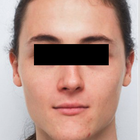
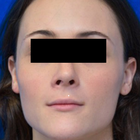
Front view
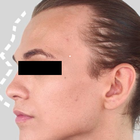
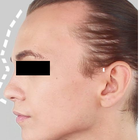
Half-side view
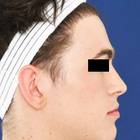
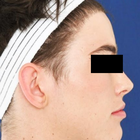
Full-side view
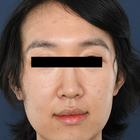
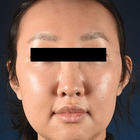
Front view
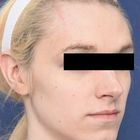
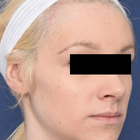
Half-side view
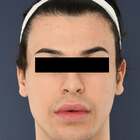
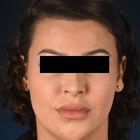
Front view
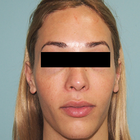
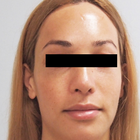
Front view
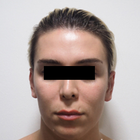

Front view
WHY US?
At Medijump, we're making medical easy. You can search, compare, discuss, and book your medical all in one place. We open the door to the best medical providers worldwide, saving you time and energy along the way, and it's all for FREE, no hidden fees, and no price markups guaranteed. So what are you waiting for?

Free

Best Price

Widest Selection

Risk-Free
What you need to know about Facial Feminization Surgery (FFS) in South Korea
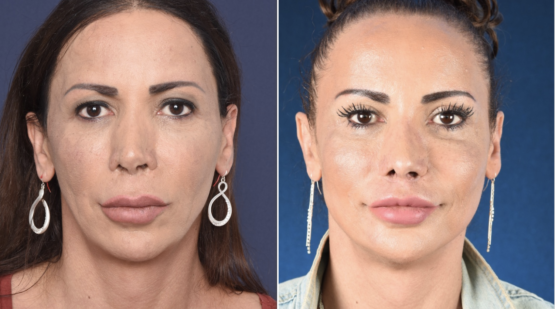
Facial Feminization Surgery, often abbreviated as FFS, is an extensive surgical process designed to modify masculine facial characteristics into a more feminine appearance. The procedure comprises several surgeries including rhinoplasty, forehead recontouring, and jaw and chin modifications. FFS is frequently sought after by transgender women desiring to more authentically express their gender identity. Any potential patient is advised to consult with a licensed surgeon to personalize the surgical plan according to their specific needs and aspirations.
Facial Feminization Surgery (FFS) usually necessitates an exhaustive pre-procedure assessment. This involves a thorough review of the patient's medical history, a complete physical examination, a psychological evaluation, and possibly facial x-rays. The surgeon will also discuss the aesthetic objectives, benefits, risks, and potential complications of the surgery with the patient. A collaborative decision-making approach is used to ensure patient safety and contentment following the procedure.
In this before and after example, the patient underwent Rhinoplasty, Chin recontouring, Jaw reduction, Lip lift, and eyelid surgery (blepharoplasty). The photo is taken 4 months post-op.
What is the cost of Facial Feminization Surgery (FFS) in South Korea?
Various elements such as the surgical complexity, hospital stays, anesthesiologist costs, and surgeon's fees influence Facial Feminization Surgery (FFS) pricing in South Korea. On average, possible charges vary from $20,000 up to $50,000. A detailed price breakdown from your healthcare provider will provide an exact view of the cost details.
The value of the procedure does not necessarily need to compromise the quality and standards of the surgery. Gain clarity about what components are inclusive and exclusive in the overall cost to understand thoroughly what your payment encompasses. Insurance firms usually do not cover aesthetic procedures, hence comprehensive knowledge and prudent financial preparation will streamline the procedure and make the Facial Feminization Surgery (FFS) a valid investment in enhancing your self-perception and assurance.
What does a Facial Feminization Surgery (FFS) Procedure Involve?
Facial Feminization Surgery (FFS) entails a range of tailored techniques aimed at personal needs with a focus on feminizing and gently modifying the facial structure. These techniques may encompass forehead reshaping, adjustments to the jaw and chin, rhinoplasty, facelifts, and other unique enhancements. The rising trend in health and well-being-oriented medical research is mirrored in personalized surgery schemes, ensuring the outcomes are attuned to individuals.
Normally, a care center will execute an in-depth consultation process to comprehend your aesthetic aspirations and draft a surgical blueprint. This evaluation is essential in harnessing the maximum advantages from the Facial Feminization Surgery (FFS). Ensuring the health and safety of the patient, a pre-operative assessment, encompassing a review of physical health and mental well-being, is a crucial measure.
How Long Should I Stay in South Korea for a Facial Feminization Surgery (FFS) Procedure?
During the planning phase for Facial Feminization Surgery (FFS), considering the necessary time for the operation and subsequent recovery is vital, in order to ensure a seamless return to standard duties. The length of your South Korea visit is heavily influenced by the surgery’s intricacy, your personal health condition, and your recovery speed. Generally, a timeframe of one to two weeks is advised before getting back to everyday activities.
However, the precise timeline can differ considerably, with follow-up meetings commonly arranged during your stay. These are paramount for evaluating your progress and identifying any possible surgical complications. This window also presents a chance for practising respiratory exercises and other preventive health methods to expedite a seamless recovery. Adherence to all the instructions given by your surgeon during this term is critical, as this significantly influences the success rate of the Facial Feminization Surgery (FFS).
What's the Recovery Time for Facial Feminization Surgery (FFS) Procedures in South Korea?
Recovery from Facial Feminization Surgery (FFS) can differ among individuals, largely depending on the procedure's scope and the patient's overall health. Usually, patients require approximately six weeks of recuperation before they can engage in strenuous activities. During this time, individuals may experience swelling, bruising, and discomfort related to the surgery, but these symptoms typically diminish over time.
Getting plenty of rest, maintaining adequate hydration, and consuming a balanced diet can aid in accelerating recovery. It's vital to strictly follow the healthcare provider's advice regarding prescribed medicines, care of surgical wounds, and limitations on activities to prevent complications and promote healing. Keep in mind that health and well-being extend beyond the surgical procedure itself, so comprehensive aftercare is essential for successful outcomes.
What sort of Aftercare is Required for Facial Feminization Surgery (FFS) Procedures in South Korea?
Appropriate aftercare is a vital component of successful Facial Feminization Surgery (FFS) and significantly influences the recovery process. It may include prescribed medications, regular medical check-ups, custom-made nutrition plans, and effective weight management. The recovery phase could span several weeks, during which adequate rest is paramount for a seamless recuperation.
Patients are often advised by their surgeons to temporarily abstain from rigorous physical activities and to maintain a healthy lifestyle. The latter should incorporate balanced nutrition, staying hydrated, taking supplements, and ensuring proper sleep and mental health management. It's important to note that adherence to the prescribed aftercare plan and attendance at follow-up visits are key to tracking improvements and promptly addressing any potential complications.
What's the Success Rate of Facial Feminization Surgery (FFS) Procedures in South Korea?
Facial Feminization Surgery (FFS) is recognized as an extremely successful surgery that produces transformative and enduring outcomes. The success rate fluctuates depending on various factors, including the proficiency of the surgeon, the overall health of the patient, and the quality of care after the surgery. A majority of patients report high levels of satisfaction, citing increased self-confidence and an enhanced quality of life.
It's important to understand, however, that despite its high success rate, the procedure isn't without potential risks and complications. Complications like infections, scarring, and dissatisfaction with the aesthetic outcome are potential, though they are rare occurrences. Thorough pre-operative evaluations, skilled surgical hands, and comprehensive post-operative care significantly lessen these risks. Consequently, when selecting the most suitable protocol for your Facial Feminization Surgery (FFS), the guiding factors should be patient safety and satisfaction.
Check out this video for before and after images of FFS patients, you'll be amazed by some of the results made possible by this surgical procedure.
Are there Alternatives to Facial Feminization Surgery (FFS) Procedures in South Korea?
Bear in mind that each person's needs and preferences are distinct, and surgical interventions might not be the most suitable route for everyone. There are other alternatives available for those who might be more inclined towards non-surgical solutions. Aesthetic treatments like injectable fillers, Botox, and others can simulate some effects of the Facial Feminization Surgery (FFS) on a temporary basis. However, cosmetic treatments of this kind typically necessitate ongoing sessions to preserve the sought after result.
Furthermore, some individuals might prefer to engage in psychological or behavioral therapies that encourage self-acceptance and a positive body image. Such therapies address the mental health components of self-image and gender dysphoria, offering a different perspective to surgery. Having open-ended discussions with healthcare providers to explore all the available options prior to making a decision is strongly advised.
What Should You Expect Before and After the Facial Feminization Surgery (FFS)?
Prior to undertaking Facial Feminization Surgery (FFS), patients participate in an in-depth consultation process. During this stage, surgeons evaluate the individual's health status, expectations, and motivations to design a treatment program that best meets their needs. Various health screenings may be conducted to verify the patient's physical suitability for the operation.
Post-procedure, initial weeks may bring about some degree of discomfort, swelling, and bruising, which will progressively decrease. Adequate post-procedure care can significantly improve recovery and the ultimate outcome of your Facial Feminization Surgery (FFS). It's crucial to maintain regular communication with your surgeon and promptly report any unusual symptoms. The goal is to ensure a successful surgical procedure followed by a rapid and smooth recovery, guiding you towards a more self-assured version of yourself.
What is the Preoperative Preparation for Facial Feminization Surgery (FFS) in South Korea?
Preparing for Facial Feminization Surgery (FFS) entails addressing both physical and mental aspects to ensure successful surgery and recuperation. Patients undergo comprehensive evaluations involving various diagnostic tests to determine their overall health and suitability for the surgery. Moreover, patients may need to halt tobacco use, moderate alcohol consumption, and adjust certain medications—especially those affecting blood clotting—as these factors could disrupt both the surgical process and healing.
In addition, therapy sessions may be suggested to assist individuals in managing the psychological implications of such a life-changing procedure. A balanced diet is also pivotal in enhancing the body's healing capacity; adopting a healthy eating regimen, such as the Mediterranean diet, and considering suitable nutritional supplements can optimize preoperative preparation. Emphasizing mental wellbeing is another vital aspect of the journey, and implementing stress management strategies can prove beneficial during this period.
What are the Long-term Implications of Facial Feminization Surgery (FFS) in South Korea?
Facial Feminization Surgery (FFS) is often viewed as a long-term commitment that yields lasting and significant transformations. It significantly enhances self-image and self-confidence, leading to a substantial improvement in life quality. Though the changes induced by the surgery are generally unchanging, sustaining a consistent weight and adopting a healthy lifestyle are vital in preserving the results.
It's important to bear in mind that adjusting psychologically is an integral aspect of such a transformative experience. Individual or group therapies can aid in navigating these changes, fostering deep-seated growth and self-understanding following the Facial Feminization Surgery (FFS). Always remember, the success of a procedure goes beyond the physical alteration—it also involves overall wellbeing, health, and a positive life perspective.
Whilst the information presented here has been accurately sourced and verified by a medical professional for its accuracy, it is still advised to consult with your doctor before pursuing a medical treatment at one of the listed medical providers
No Time?
Tell us what you're looking for and we'll reachout to the top clinics all at once
Enquire Now

Popular Procedures in South Korea
Prices Start From $96

Prices Start From $111

Prices Start From $70

Prices Start From $16

Prices Start From $220

Prices Start From $28

Prices Start From $672

Prices Start From $275

Prices Start From $101

Prices Start From $556

Prices Start From $4,377

Recommended Medical Centers in South Korea for Facial Feminization Surgery (FFS)

- Interpreter services
- Translation service
- Religious facilities
- Medical records transfer
- Medical travel insurance
- Health insurance coordination
- TV in the room
- Safe in the room
- Phone in the room
- Private rooms for patients available

- Interpreter services
- Translation service
- Religious facilities
- Medical records transfer
- Medical travel insurance
- Health insurance coordination
- TV in the room
- Safe in the room
- Phone in the room
- Private rooms for patients available

- Interpreter services
- Translation service
- Religious facilities
- Medical records transfer
- Medical travel insurance
- Health insurance coordination
- TV in the room
- Safe in the room
- Phone in the room
- Private rooms for patients available

- Interpreter services
- Translation service
- Religious facilities
- Medical records transfer
- Medical travel insurance
- Health insurance coordination
- TV in the room
- Safe in the room
- Phone in the room
- Private rooms for patients available

- Interpreter services
- Translation service
- Religious facilities
- Medical records transfer
- Medical travel insurance
- Health insurance coordination
- TV in the room
- Safe in the room
- Phone in the room
- Private rooms for patients available

- Interpreter services
- Translation service
- Religious facilities
- Medical records transfer
- Medical travel insurance
- Health insurance coordination
- TV in the room
- Safe in the room
- Phone in the room
- Private rooms for patients available

- Interpreter services
- Translation service
- Religious facilities
- Medical records transfer
- Medical travel insurance
- Health insurance coordination
- TV in the room
- Safe in the room
- Phone in the room
- Private rooms for patients available

- Interpreter services
- Translation service
- Religious facilities
- Medical records transfer
- Medical travel insurance
- Health insurance coordination
- TV in the room
- Safe in the room
- Phone in the room
- Private rooms for patients available

- Interpreter services
- Translation service
- Religious facilities
- Medical records transfer
- Medical travel insurance
- Health insurance coordination
- TV in the room
- Safe in the room
- Phone in the room
- Private rooms for patients available

- Interpreter services
- Translation service
- Religious facilities
- Medical records transfer
- Medical travel insurance
- Health insurance coordination
- TV in the room
- Safe in the room
- Phone in the room
- Private rooms for patients available
Facial Feminization Surgery (FFS) in and around South Korea
About South Korea
South Korea’s population is 51 million and it's capital Seoul is a major world city. 50 percent of the country’s population lives within the Seoul Capital Area which includes Seoul, Incheon, and Gyeonggi-do. The capital is situated in the north-west region of the country.
The Republic of Korea has immense potential for medical tourism with futuristic hospitals, sophisticated technologies, and advanced procedures. The government is taking all measures to make the country a top medical tourism destination. By 2022, it is looking to receive 998,000 medical tourists in the country.
Tourists from the USA, UAE, and Japan travel to Korea for affordable treatments. Some medical institutions in South Korea offer price packages, especially for plastic surgery, and help the medical tourist to save up to 40 percent on the treatment, even after adding travel and accommodation costs.
The Country has 27 accredited JCI-certified state-of-art hospitals. Severance Hospital, Seoul National University Hospital, and JK Plastic Surgery Centre are the most renowned hospitals within South Korea for medical tourism. The Doctors are well-educated to international standards of certifications and training.
The country is popular for treatments and procedures in several medical specialties, with an excellent track record for success and survival rates. Cancer treatment, plastic surgery, cardiovascular procedures, orthopedics, and preventive health check-ups are the top five areas for medical tourism in Korea.
Popular Parts of South Korea
When considering South Korea, it would be a mistake to overlook its many offerings that stretch way beyond the confines of its dynamic capital, Seoul. This vibrant nation is the embodiment of a perfect blend of advanced urban slickness, serene yet majestic rustic charm, awe-inspiring scenic beauty, and serene coastal landscapes with pristine beaches. Everywhere you go, each region unravels a story and invites you to become part of its unique narrative.
Notably, South Korea teems with places that make for intriguing and memorable visits. These locales, scattered across the country, are an intriguing cocktail of experiences, extending from modern high-tech cities shrouded in electrifying energy to tranquil, time-honoured folk villages nestled amongst nature's wonder, where tranquillity prevails and tradition holds sway.
- Seoul – The capital city is a mix of pop and party culture, modern architecture, scenic parks, and glittering promenades and it is also rich in history and culture. The National Museum, War Memorial, Changdeokgung Palace, and Bukchon Hanok Village are some of the key attractions in Seoul.
- The Korean Demilitarized Zone (DMZ) – DMZ is one of the most important places in South Korea as you will get a better knowledge of the troubles between North and South. When you book a DMZ 3rd tunnel tour, make sure it includes the tram ride up and down the tunnel, or you will be in for a long walk. You can also get a glimpse of North Korea from the Observation Post in DMZ.
- Busan - Is the second largest city of South Korea and is well known for hosting Asia’s biggest international film festival. It is also a unique blend of modern skyscrapers, majestic mountains, picturesque beaches, and magnificent Buddhist temples. Haedong Yonggungsa Temple and the Jagalchi fish market are some of the popular sites.
- Jeju Island –Has beautiful white sandy beaches, volcanic craters, and lava caves, and the botanical gardens will take your breath away. Hyeopjae & Hamdeok beach, Cheonjiyeon Waterfalls, and Seongsan Sunrise Peak are some of the interesting places on this island.
- Gyeongju –This coastal city has a large collection of cultural and historical sites dating back a thousand years. It gives you a peek into its cultural roots through the UNESCO World Heritage site, Bulguksa Temple, and the National Museum.
Seoraksan National Park, Incheon, and Pyeongchang County are a few other places to visit in South Korea.
Weather and Climate in South Korea
South Korea's climate is particularly noteworthy as it is blessed with distinct four seasons, each acquiring a unique charm. The rhythm of nature's cycles is quite pronounced and experienced vividly throughout the country. Spring flamboyantly arrives with blooming flowers and warmth, followed by summer's bright and sunny constitution. Autumn then takes over, painting the landscapes with artistic hues of red and gold, and finally, winter wraps up the cycle by painting the country white with its quiet snowfall.
- Summers are from June to August and are hot, humid, and rainy. There can be heavy rainfall in July and August.
- Winters are from late November to mid-March. During winter, it is freezing cold in the north and the interiors and mild along the southern coasts and snowfalls are rare.
- Spring is from mid-March to May. It is cold at the beginning of the season and gradually becomes milder. Rainfall becomes more frequent with the formation of low-pressure systems.
- Autumn is from September to late November and this is a pleasant season and during October the highest temperature is around 68 to 72°F. Rainfall is considerably less than in spring.
The average temperature in Seoul in January is around 73.4 to 81.5°F and in July its 71° to 75°F.
Getting Around in South Korea
Incheon International Airport at Seoul handles many daily flights from North America. Many of which are non-stop from San Francisco, Los Angeles, and Atlanta. Korean Air, United, and Delta Airlines operate a lot of these flights. Seoul is also reachable from its other Asian neighbors, Europe, and the middle-east. Other international airports in South Korea are located in Busan, Cheongju, and Jeju.
Gimpy International Airport, also in Seoul, handles domestic flight operations. You can connect to the Seoul Subway System, and to Incheon Airport by the Arex Train System.
Train travel is the most convenient and economical way to get around in South Korea. You can buy a KORAIL rail pass when you arrive at the airport. South Korea’s high-speed bullet train, the KTX, connects Seoul to Busan within 3 hours and It also connects to the other major cities within South Korea.
The Seoul Bus Terminal and the Central City Terminal operate buses to all of the cities. Bus travel is inexpensive and efficient, and fairly empty traveling to the smaller cities. Renting a car is also an option, but expensive.
Tourist Visas in South Korea
South Korea has an agreement with 117 jurisdictions for a visa-waiver. Visitors from countries under the visa-waiver program, such as the USA, Japan, EU countries, and New Zealand can enter the country without a tourist visa. Tourists can stay for up to 90 days with a valid passport. Canadians can enter visa-free and stay up to 180 days.
For citizens hailing from most Asian countries, including India and China, and also from Russia, planning a trip to South Korea involves obtaining a tourist visa. The South Korean government enforces travel protocols that require individuals from these nations to secure proper documentation prior to their visit, ensuring that travel regulations are adhered to and creating a simple and systematic process.
This prerequisite visa policy is a standard procedure which intends to streamline the influx of tourists and visitors from these specific nations. Each application undergoes a careful assessment to guarantee that all rules and regulations proposed by the South Korean authorities are in place. It constitutes a critical aspect of aiding security measures, maintaining immigration transparency, and promoting cultural exchange in a regulated manner. Thus, it is an imperative that citizens of these countries, such as India, China, and Russia, procure a tourist visa before embarking on their journey to discover the marvels of South Korea.
Additional Information
- Korean Republican Won (KRW) is the currency of Korea. One US dollar converts to 1,342.95 KRW.
- You can exchange most of the major currencies to KRW in banks and currency exchanges. US dollars and Euros are the easiest to convert.
- You can withdraw money from the many ATMs. Or you may even use credit cards for payments in South Korea.
- Korean and Korean Sign Language are the official languages of South Korea. Hangul is the formal script.
- 56.9% of the people are non-religious. Among the religious population, the majority are Christians. Others follow Korean Buddhism.
- The culture of South Korea is a blend of ancient Korean culture with ancient Chinese and Japanese cultures. Respect for elders is an important aspect of their culture.
- New Year Day (falls in February as per lunar calendar), The Birthday of Buddha (early May), Independence Day (March 1), Memorial Day (June 6), Constitution Day (July 17) are a few important holidays in the Republic of Korea.
Popular Searches
- Plastic Surgery in Thailand
- Dental Implants in Thailand
- Hair Transplant in Thailand
- Breast Augmentation Thailand
- Gastric Sleeve in Thailand
- Gender Reassignment Surgery in Thailand
- Laser Hair Removal in Bangkok
- Botox in Bangkok
- Dermatology in Bangkok
- Breast Augmentation in Bangkok
- Coolsculpting in Bangkok
- Veneers in Turkey
- Hair Transplant in Turkey
- Rhinoplasty in Turkey
- Stem Cell Therapy in Mexico
- Rhinoplasty in Mexico
- Liposuction in Mexico
- Coolsculpting in Tijuana
- Rhinoplasty in Korea
- Scar Removal in Korea
- Gastric Sleeve in Turkey
- Bone Marrow Transplant in India
- Invisalign in Malaysia
- Plastic Surgery in the Dominican Republic
- Tummy Tuck in the Dominican Republic
- Plastic and Cosmetic Surgery in Poland
- Rhinoplasty in Poland
- Hair Implant in Poland
- Dental Implants in Poland
- IVF in Turkey

